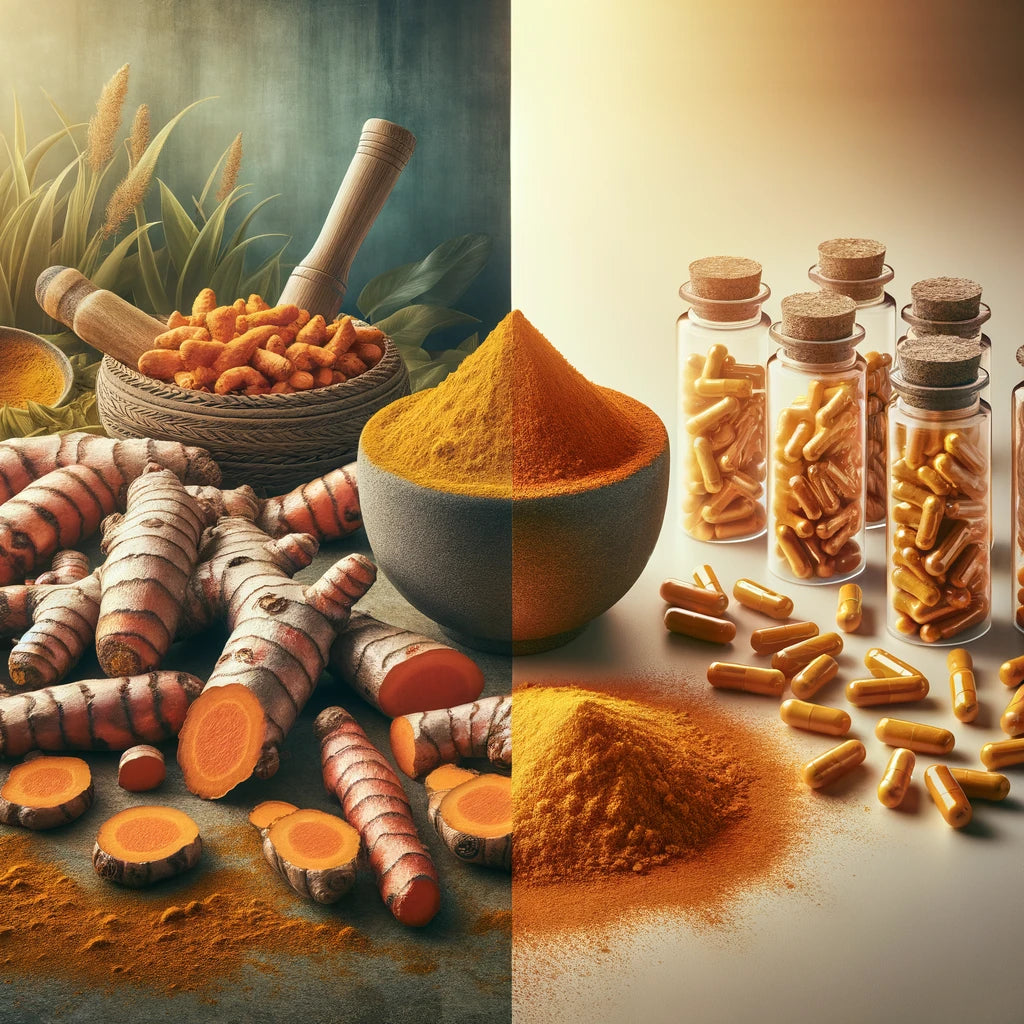
Turmeric vs Curcumin: Understanding the Differences and Benefits
|
|
Time to read 2 min
|
|
Time to read 2 min
We understand that turmeric is a vibrant yellow spice commonly found in Asian cuisine, particularly Indian dishes such as curries. This spice originates from the root of the Curcuma longa plant, which belongs to the ginger family.
When purchased fresh, it resembles ginger root but with a more vivid yellow to golden hue.
In traditional practices, especially Ayurvedic medicine, turmeric is revered for its ability to alleviate skin conditions, digestive problems, and pain due to its range of plant compounds. Among these, a group known as curcuminoids stands out for their health-promoting properties, with curcumin being the primary and most active constituent.
Although it only constitutes approximately 2–8% of turmeric preparations, curcumin imparts the characteristic color and contributes greatly to the spice's flavor profile.
Beyond its culinary use, curcumin is distinguished for its potent anti-inflammatory and antioxidant activities. Evidence suggests that whole turmeric, with its ensemble of compounds, might offer amplified benefits compared to curcumin alone, particularly in anti-fungal and anti-tumor capacities.
Turmeric and curcumin have been extensively researched for their therapeutic properties. Here's a summarized list of health benefits they are known to provide:
Moreover, the research pointing to the anti-fungal and antibacterial capabilities of turmeric and curcumin is compelling, indicating they could enhance the effectiveness of conventional anti-microbial treatments.
We also know that turmeric has shown promise in brain health and could be protective against neurodegenerative conditions like Parkinson's disease. Moreover, its antioxidant and anti-inflammatory properties may prove supportive in managing mood-related conditions such as depression and anxiety.
A vital aspect of using these supplements is their bioavailability. Curcumin is notoriously challenging for the body to absorb effectively.
To enhance absorption, it's advantageous to combine curcumin with piperine, a constituent of black pepper, which can increase curcumin's bioavailability substantially.
When considering supplementation, note that effective doses in studies often range between 1–6 grams of curcumin daily. Results usually appear after a few weeks of consistent intake.
Turmeric extracts standardized to include high amounts of curcumin may offer the most pronounced benefits.
However, we must be cautious, as high doses could lead to digestive discomfort and nausea in some individuals. Therefore, adhering to the recommended dosages provided by quality supplements is crucial.
Through continued research, we better understand the intricate role these natural compounds can play in maintaining and enhancing our health.
Both turmeric and curcumin supplements show promise across various health domains, warranting consideration as part of our dietary supplement regimen.